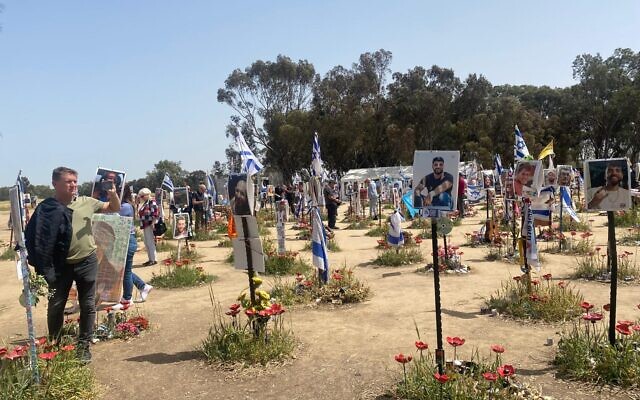SPECIAL REPORT: My visit to Israel made me see how British Jews have normalised making themselves smaller
In the first of three reports, Michelle Rosenberg reflects on a profound trip to Israel with UJIA, bearing witness to the horrors of 7 October and efforts to rebuild and repair
Walking towards Hostage Square in Tel Aviv, I realised what I’d done. We’d met the father of Gaza hostage Tal Shoham and I was carrying his poster. As a British Jew, my reflexes still hard-wired for self-preservation, I was automatically carrying it with Tal’s face hidden, facing towards me. Stopping, I checked myself and turned it to face outwards. It was profoundly liberating.
But I’m getting ahead of myself. It’s been three days since landing back at Heathrow from Israel. I’m still processing the intense 72 hour trip with UJIA, alongside 13 British Jews from London, Leeds and Manchester.
Following the Hamas terror attacks of 7 October, UJIA, the UK’s largest Israel charity, immediately launched an emergency community appeal. From 8 October, its focus has been on allocating funds to support the most pressing needs for Israelis, key among them mental health and trauma support.
The trip was to strengthen the connection between British Jewry and Israel, to bear witness to the unspeakable horrors that unfolded on ‘Black Shabbat’ and highlight programmes and projects UJIA is supporting.
Quite frankly, it’s impossible to fully describe the emotional and spiritual impact of the trip. I know the other members of the group would agree. You cannot visit the site of the Nova music festival massacre and the charred ruins of houses set ablaze by terrorists at Kibbutz Be’eri and not be bonded in some way.
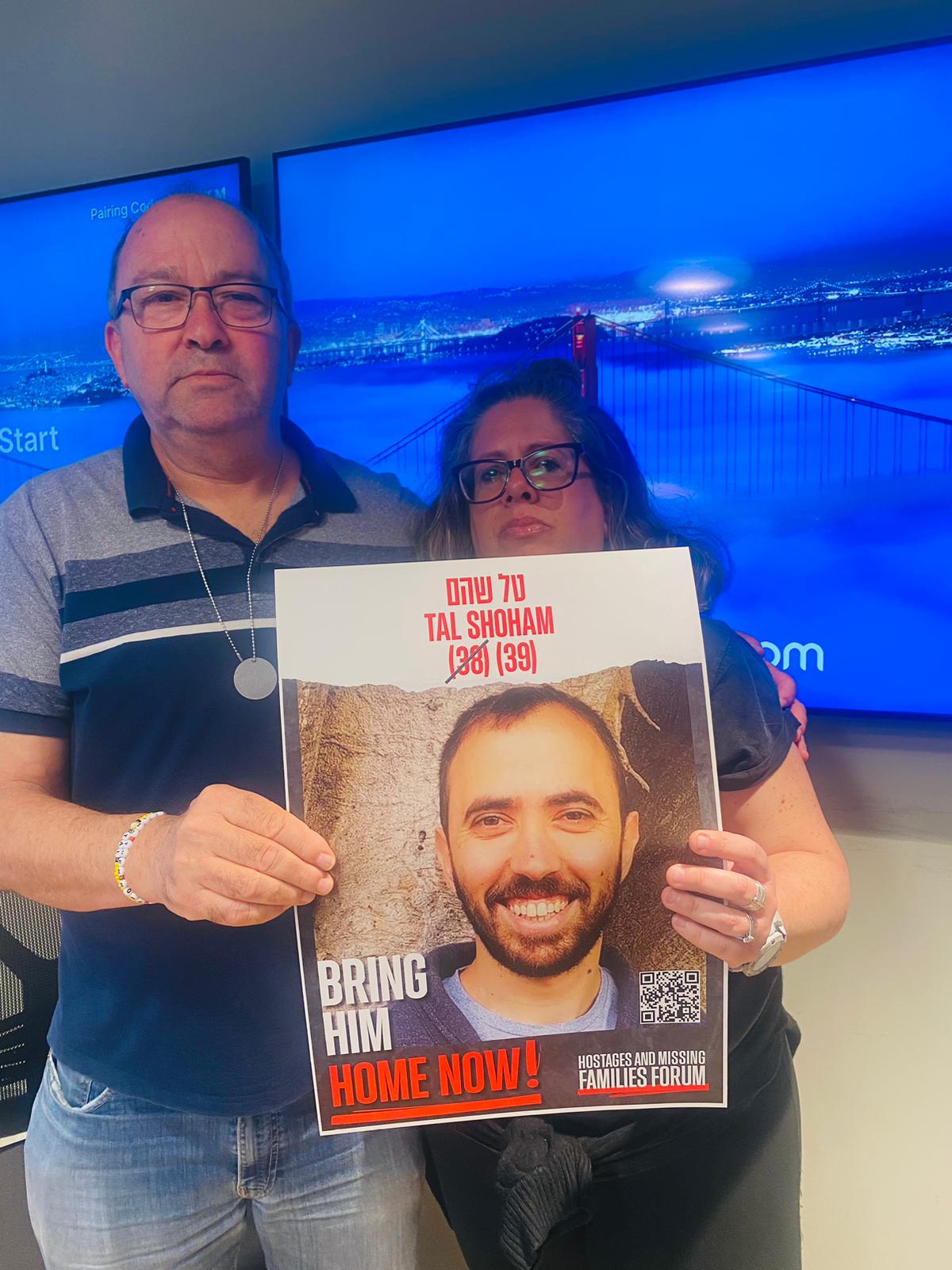
My brain is still struggling to slot together the scenes we saw with the online footage we’d read, listened to, watched, and in the case of myself and the entire Jewish News team, written about since 7 October.
The site of the Nova festival massacre, near Kibbutz Re’im has become a place of pilgrimage. We approached it on the 232 Road, now grimly infamous from the media footage of burnt out, bullet-ridden cars of those who attempted to escape and the stories of the impossibly brave Israelis who traversed it back and forth on rescue missions.
The field where the main concert stage had been is now neatly plotted out with memorials to every innocent person who was massacred that day. Israeli flags, flowers, memorial candles, pictures, ceramic red flowers, notes, stickers.
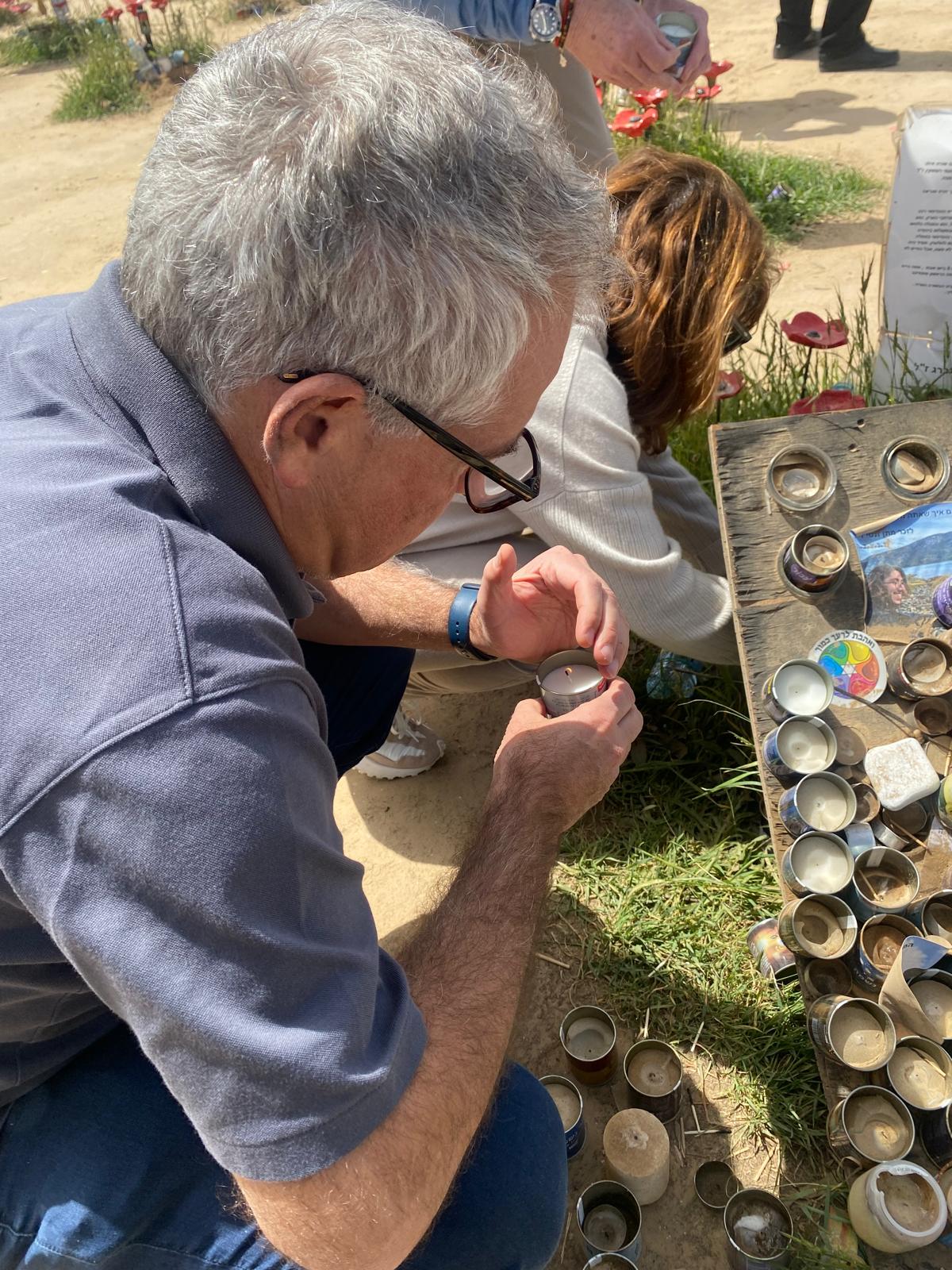
Our group recited Kaddish, some wept and we walked in silence to bear witness. It was eerily quiet, the silence permeated only with the boom of artillery rounds being fired by the IDF into Gaza, just kilometres away.
Kibbutz Be’eri was overwhelming. That such a beautiful place, filled with so much love, community, carefully cultivated green, flowers and trees, was subject to such brutality, is incomprehensible. We were met by Nieve, a 29-year-old who has lived his whole life there and whose aunt was brutally murdered on 7 October. He showed us the picture of the two bullet holes in the wall of the room where she was massacred.
We see the bullet-ridden yellow wall of the dental clinic where two residents were murdered; we witness the ruins of the home of Emily Hand, the nine-year old Irish-Israeli kidnapped from Be’eri and released in November alongside 12 other Israelis after 49 days in captivity.
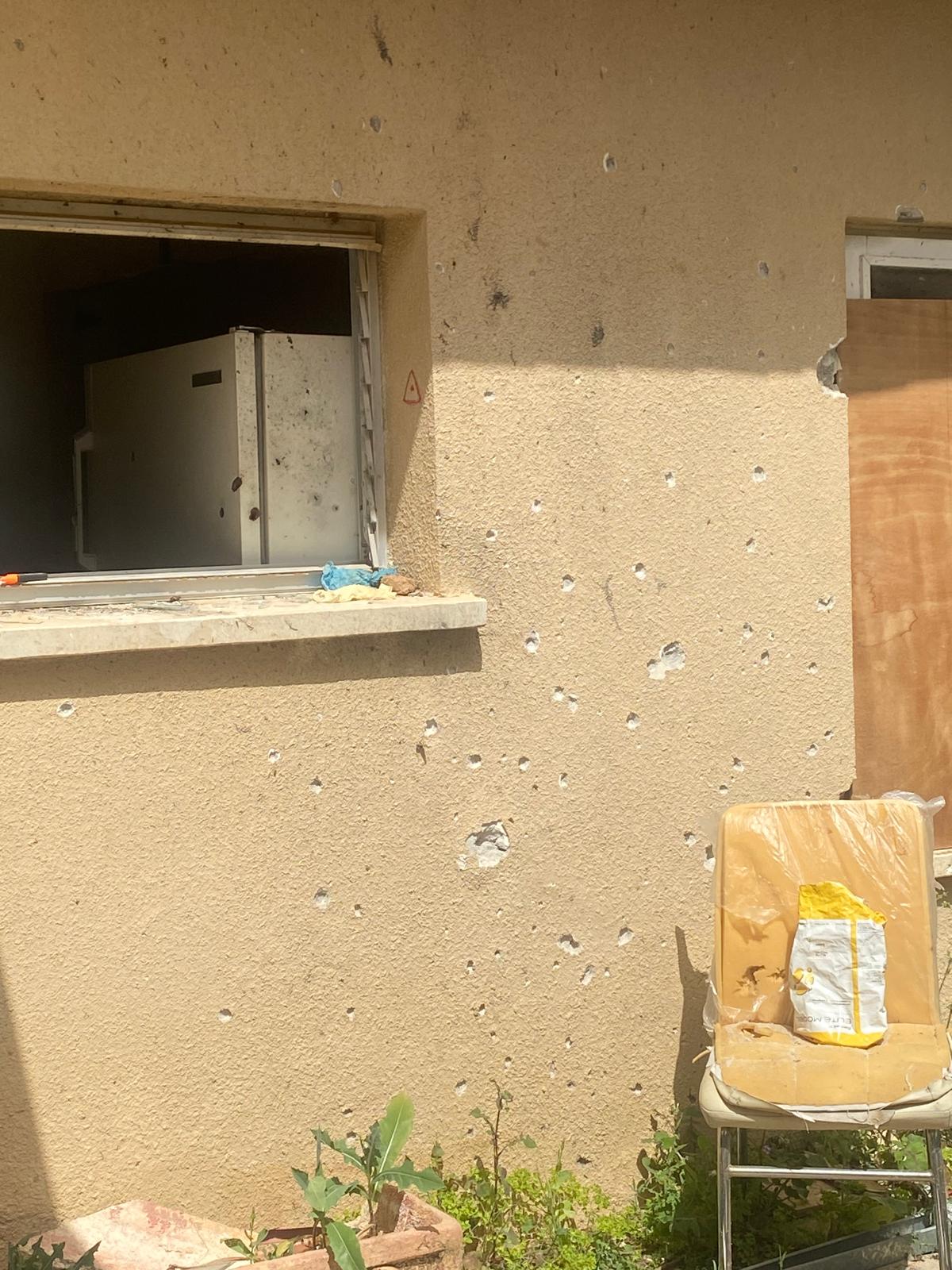
In Jerusalem, we meet residents of the Michael Levin Lone Soldier centre, where UJIA is supporting the provision of trauma support for released soldiers from this current war. “Big up the Essex!” was the raucous response as one former Ilford boy introduced himself.
We heard from Rabbi Donniel Hartman of the Shalom Hartman Institute, a man of such profound intellect that collectively we agreed that through his example alone, the world could rest easy that Jews are indeed People of the Book.
At a warehouse in Rishon Lezion, with sleeves rolled up and surrounded by boxes of matzah, wine, olive oil and chickpeas, we packed Pesach food boxes at Pitchon Lev, Israel’s leading poverty fighting charity. Supported by UJIA it has developed additional services to meet the needs of Israelis during the war. (I’m not suggesting the cardboard box making got competitive, and I wouldn’t dream of revealing that the British volunteers tabled a motion to launch a union movement to regulate tea and snack breaks).
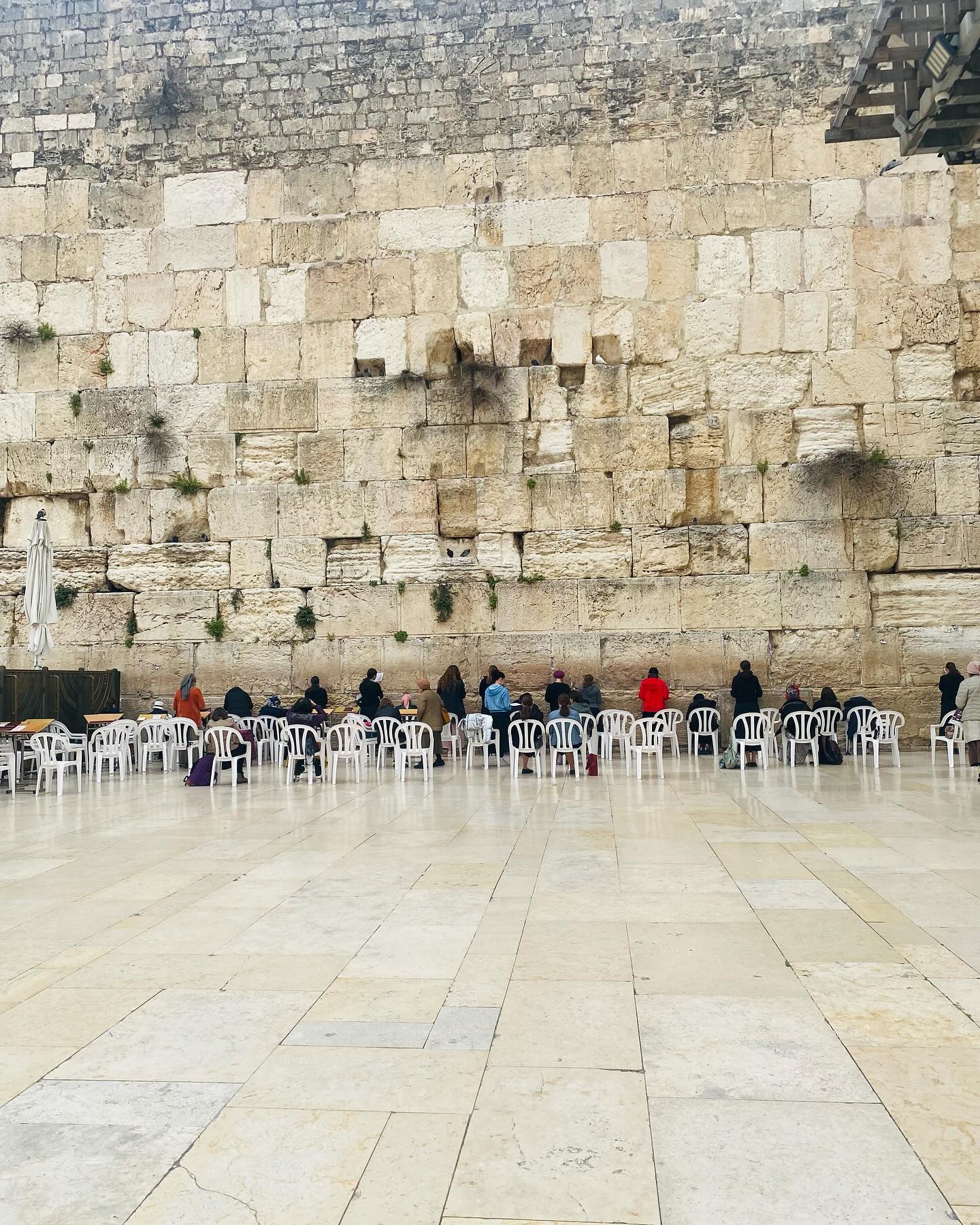
We prayed at the Kotel for the safe return of the hostages, heard from reservist paratrooper Sam Sank who insisted that despite his 140 day stint in Gaza, it was British Jewry who were heroic for dealing with rising antisemitism.
Whilst the trip amplified the enormity of the challenges ahead for Israel, politically, economically, socially and mentally, it demonstrated beyond doubt the undisputed, unbreakable connection, the Yiddishkeit, between British Jews and Israelis. We are one family, one tribe. Their pain is ours. Their trauma is ours. Their grief is ours.
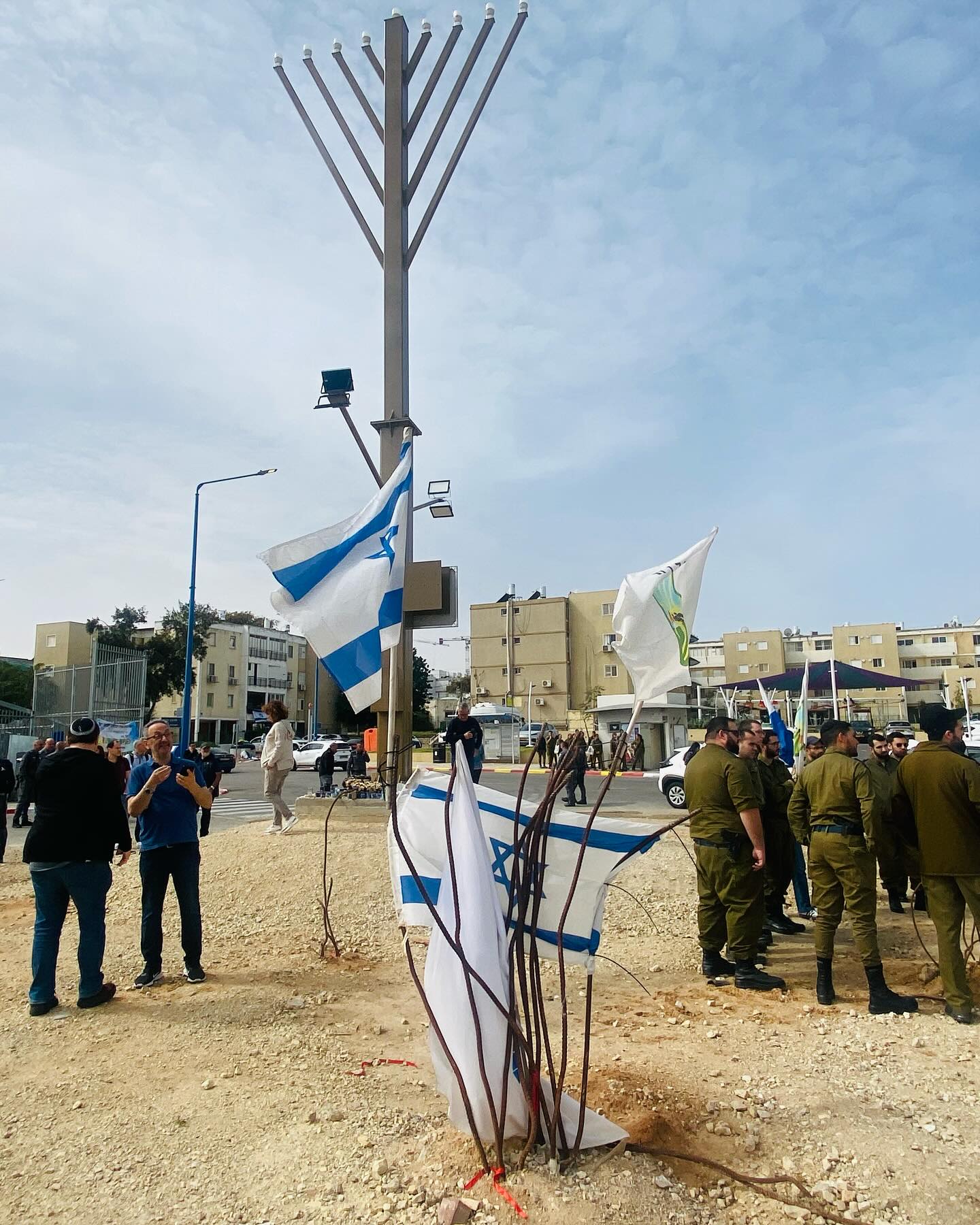
What was extraordinary was that everyone we met thanked us for coming but expressed concern for our safety in the UK. “How is the UK antisemitism?” we were asked repeatedly.
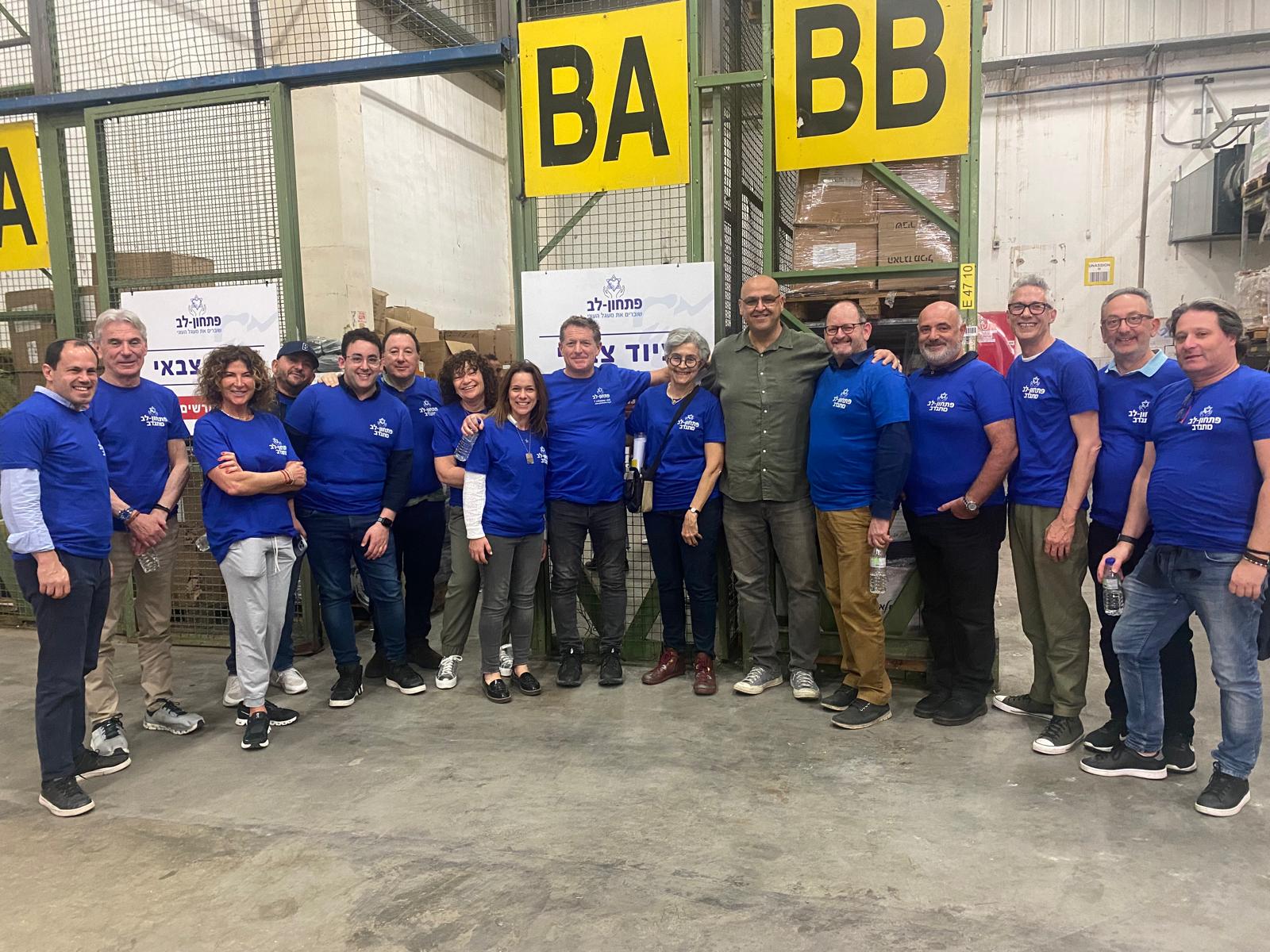
Having felt so liberated, so viscerally proud of my culture, my history, my heritage, the thought of coming back to the UK and having to re-shrink that identity, to hide myself away for my own safety, to worry about my youngest daughter wearing her Israel tour hoodie or my eldest wearing her great-grandmother’s Magen David necklace, was profoundly disturbing.
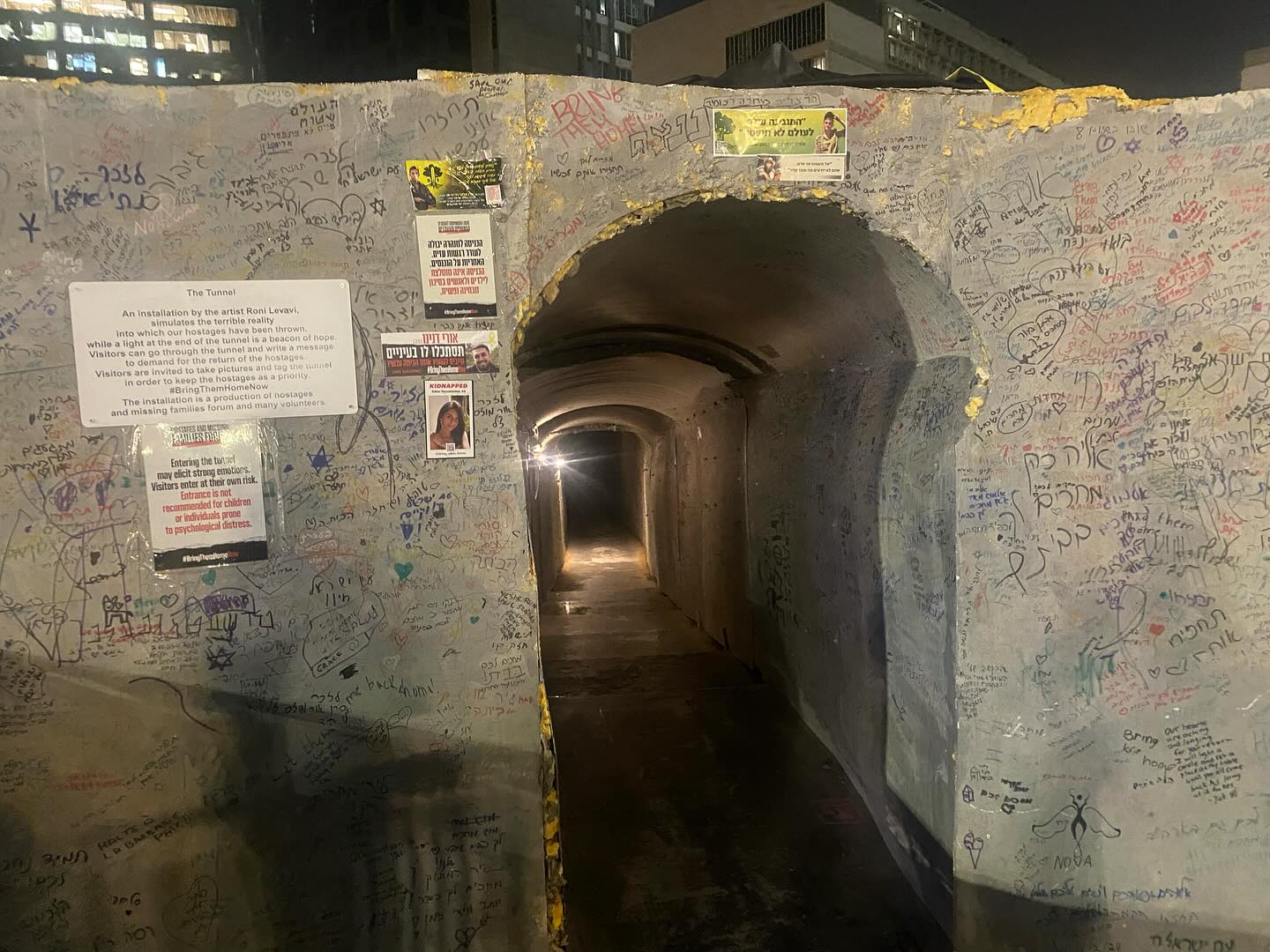
I realised, as Jews in the UK, how much we have normalised making ourselves smaller.
Like Peter Pan being severed from his shadow, I feel I’ve left a huge part of my true self in Israel – perhaps the most important. My neshuma. It’s one I carry with fierce pride and one I will never give up. The challenge for me now is how to navigate that dual citizenship; physically present in the UK whilst my heart and soul remain forever in Israel.
- To support UJIA’s emergency community appeal, click here.

Thank you for helping to make Jewish News the leading source of news and opinion for the UK Jewish community. Today we're asking for your invaluable help to continue putting our community first in everything we do.
For as little as £5 a month you can help sustain the vital work we do in celebrating and standing up for Jewish life in Britain.
Jewish News holds our community together and keeps us connected. Like a synagogue, it’s where people turn to feel part of something bigger. It also proudly shows the rest of Britain the vibrancy and rich culture of modern Jewish life.
You can make a quick and easy one-off or monthly contribution of £5, £10, £20 or any other sum you’re comfortable with.
100% of your donation will help us continue celebrating our community, in all its dynamic diversity...
Engaging
Being a community platform means so much more than producing a newspaper and website. One of our proudest roles is media partnering with our invaluable charities to amplify the outstanding work they do to help us all.
Celebrating
There’s no shortage of oys in the world but Jewish News takes every opportunity to celebrate the joys too, through projects like Night of Heroes, 40 Under 40 and other compelling countdowns that make the community kvell with pride.
Pioneering
In the first collaboration between media outlets from different faiths, Jewish News worked with British Muslim TV and Church Times to produce a list of young activists leading the way on interfaith understanding.
Campaigning
Royal Mail issued a stamp honouring Holocaust hero Sir Nicholas Winton after a Jewish News campaign attracted more than 100,000 backers. Jewish Newsalso produces special editions of the paper highlighting pressing issues including mental health and Holocaust remembrance.
Easy access
In an age when news is readily accessible, Jewish News provides high-quality content free online and offline, removing any financial barriers to connecting people.
Voice of our community to wider society
The Jewish News team regularly appears on TV, radio and on the pages of the national press to comment on stories about the Jewish community. Easy access to the paper on the streets of London also means Jewish News provides an invaluable window into the community for the country at large.
We hope you agree all this is worth preserving.


